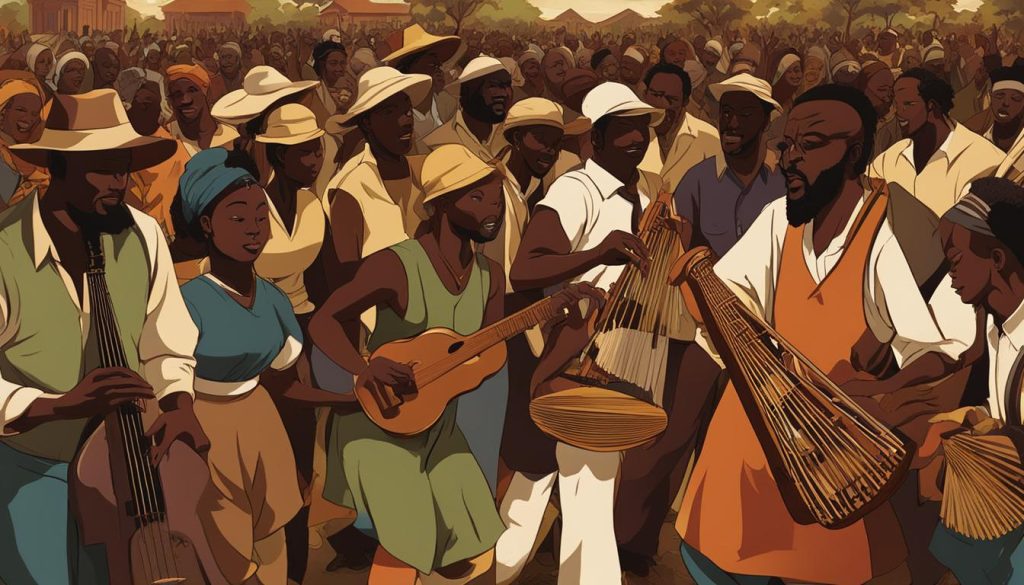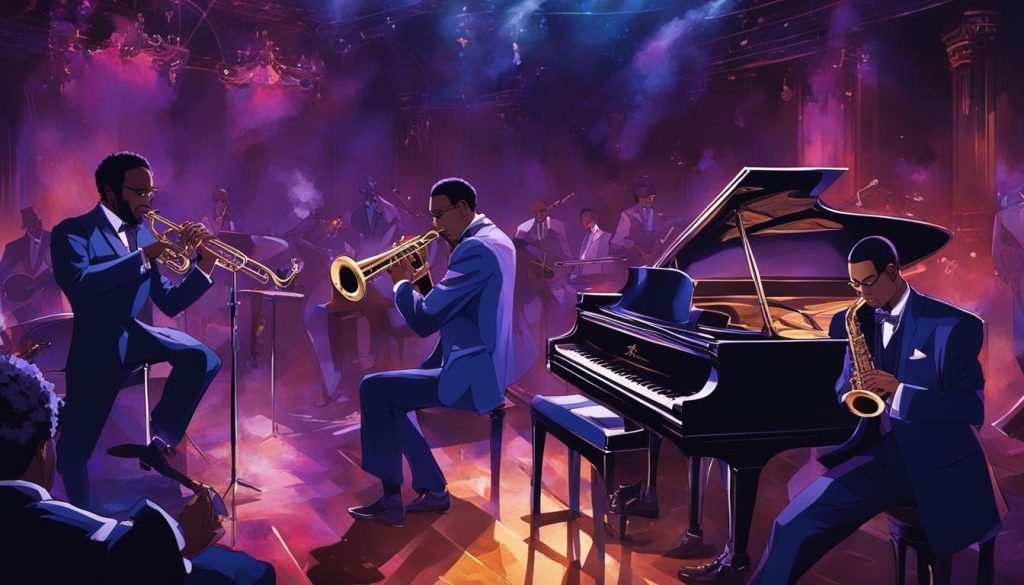Exploring the Vibrant World of Jazz Music
Jazz music is a genre that has persevered through the ages, standing the test of time as one of the most revered styles of music across the world today. This style of music has a rich and storied history that spans decades, making it an enduring influence across multiple generations and cultures. Jazz music has been shaped by some of the most influential artists in history, who have left their indelible mark on the genre.
From the sultry saxophones to the scintillating piano keys, jazz music has a way of captivating listeners and transporting them to an ethereal musical world. Jazz music is more than just a collection of notes on a page, it’s a cultural phenomenon that has shaped the music industry in significant ways. In this article, we explore the rich history of jazz music, the seminal artists who have shaped the genre, and the enduring influence that jazz has had on culture.
Key Takeaways
- Jazz music has a rich history that has spanned decades, making it a timeless genre that transcends multiple cultures and generations.
- The genre has been shaped by some of the most influential artists in history, including Louis Armstrong, Duke Ellington, Miles Davis, and Ella Fitzgerald.
- Jazz has an enduring influence on contemporary culture, with modern musicians pushing the boundaries of the genre today.
- Jazz music has influenced various artistic mediums, including film, literature, and festivals worldwide.
- Jazz music is more than just a collection of notes, it’s a cultural phenomenon that has shaped the music industry in significant ways.
The Origins of Jazz Music
Jazz music, with its distinct style and sound, is a musical genre that originated in the United States. More specifically, its origins can be traced back to the African-American community in New Orleans during the late 19th and early 20th centuries. Jazz music emerged as a fusion of different musical styles and instruments, blending European harmonies and African rhythms. This unique musical style quickly gained popularity and spread to other parts of the country, eventually becoming a global phenomenon.
One of the key elements that helped shape jazz music was improvisation. Jazz musicians would often spontaneously create new melodies and rhythms during their performances, bringing a sense of creativity and individuality to their music. Similarly, syncopation, which involves adding accents or emphasis on normally weak beats, gave jazz music a distinctive and exciting energy that set it apart from other genres.

The origins of jazz music are deeply intertwined with African-American culture and history, and it continues to be celebrated and appreciated today for its influence on music, art, and society as a whole.
Seminal Artists in Jazz History
Throughout its history, jazz music has been defined by its exceptional artists. Below are profiles of some of the most influential jazz legends of all time: Louis Armstrong, Duke Ellington, Miles Davis, and Ella Fitzgerald.
Louis Armstrong
 Described as the “father of jazz,” Louis Armstrong was a pioneering figure in the genre and one of its most prominent ambassadors. Known for his unmistakable gravelly voice and virtuosic trumpet playing, Armstrong was a key figure in the development of jazz as a soloist’s artform. His recordings, such as “What a Wonderful World,” remain a beloved part of jazz’s history.
Described as the “father of jazz,” Louis Armstrong was a pioneering figure in the genre and one of its most prominent ambassadors. Known for his unmistakable gravelly voice and virtuosic trumpet playing, Armstrong was a key figure in the development of jazz as a soloist’s artform. His recordings, such as “What a Wonderful World,” remain a beloved part of jazz’s history.
Duke Ellington
Another towering figure in jazz history, Duke Ellington’s career spanned over five decades and yielded a vast catalog of music that explored jazz’s many possibilities. His distinctive sound, which combined big-band instrumentation with intricate compositions, influenced generations of musicians. Ellington’s contributions to jazz earned him the nickname “The Duke” and numerous awards.
Miles Davis
One of the most innovative and transformative figures in jazz music, Miles Davis’s career spanned the Bebop, Cool, Hard Bop, and Fusion eras of jazz. His commitment to experimentation and pushing boundaries led to the creation of some of jazz music’s most celebrated albums, such as Kind of Blue and Bitches Brew. Davis’s artistic vision continues to inspire modern jazz musicians.
Ella Fitzgerald
An incomparable talent, Ella Fitzgerald was revered for her exquisite phrasing, vocal range, and interpretive abilities. She became known as the “Queen of Jazz” throughout her career, which spanned over six decades. Fitzgerald’s collaborations with other jazz greats, such as Duke Ellington and Louis Armstrong, produced some of jazz’s most memorable recordings.
The Enduring Influence of Jazz on Culture
Throughout its more than century-long history, jazz music’s influence has reached far beyond the world of music. It has penetrated various aspects of our culture, including film and literature, leaving an indelible mark that continues to inspire people today.
Jazz’s influence on film and literature is evident in the many works inspired by the genre. From classic films like “Round Midnight” and “Bird” to the works of authors like Jack Kerouac and Langston Hughes, jazz has played a pivotal role in shaping and inspiring the creative arts. Their works often captured the essence of jazz’s improvisation and the spontaneity of its performances, celebrating the genre as an expression of human emotion and creativity.
Jazz festivals around the world are another testament to the genre’s enduring impact on culture. Events like the New Orleans Jazz & Heritage Festival and the Monterey Jazz Festival attract hundreds of thousands of fans each year, highlighting jazz’s universal appeal and its ability to bring people together through music.
The New Generation of Jazz Musicians
As jazz continues to evolve and inspire new artists, the genre remains as relevant today as it was during its inception. Modern jazz musicians like Esperanza Spalding and Kamasi Washington are pushing the boundaries of the genre, incorporating new sounds and influences to shape a new era of jazz music.
With its enduring influence on culture, jazz music will continue to inspire and captivate audiences for decades to come.
Conclusion
In conclusion, jazz music remains an enduring cultural phenomenon that has left an indelible mark on history. From its early origins in African-American culture to its widespread popularity today, jazz has continuously evolved while maintaining its distinctive sound. Seminal artists such as Louis Armstrong, Duke Ellington, Miles Davis, and Ella Fitzgerald have contributed significantly to the genre and continue to inspire modern jazz musicians today. Jazz’s influence can be seen not only in music but also in film and literature and celebrated at jazz festivals around the world. Despite its long and storied history, jazz remains as relevant as ever, reflecting the creativity and diversity of our modern times.
FAQ
What is jazz music?
Jazz music is a genre that originated from African-American culture in New Orleans. It is characterized by its improvisational nature and syncopated rhythms, which give it a unique and vibrant sound.
Who are some of the seminal artists in jazz history?
Some of the most influential jazz artists throughout history include Louis Armstrong, Duke Ellington, Miles Davis, and Ella Fitzgerald. These artists not only shaped the genre but also left a lasting impact on jazz music as a whole.
How has jazz influenced culture?
Jazz has had a significant influence on culture, particularly in artistic mediums such as film and literature. It has also given rise to numerous jazz festivals around the world. Additionally, modern jazz musicians continue to push the boundaries of the genre, ensuring its enduring relevance in contemporary times.
